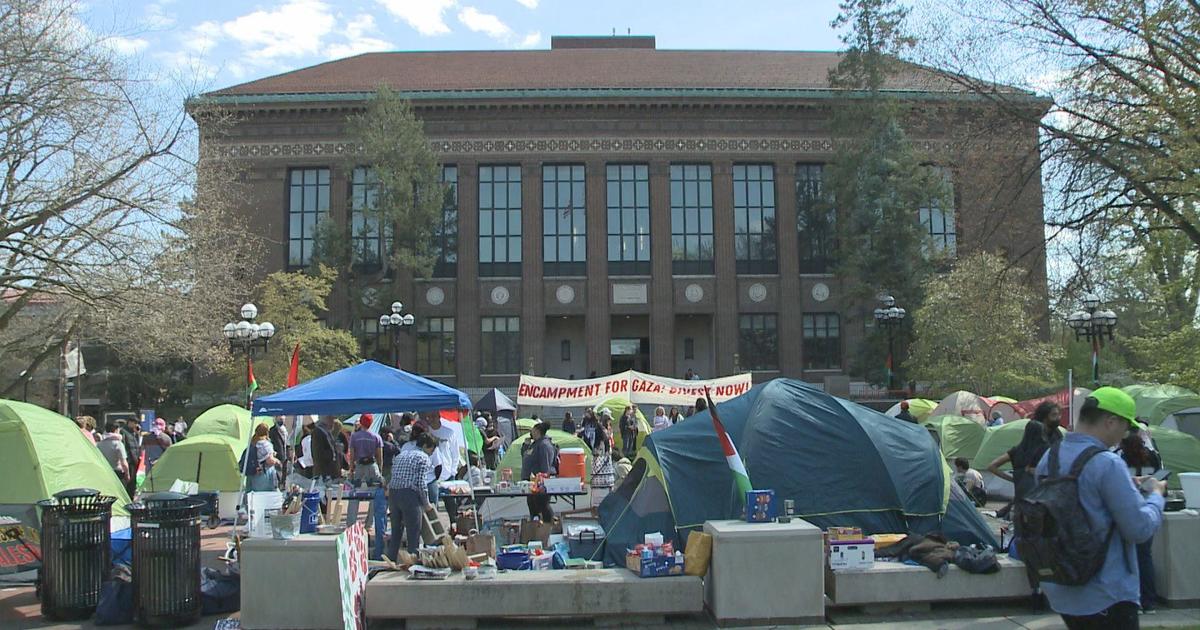MSU Prof Wins $400,000 NSF Award For Fuel Cell Research
EAST LANSING (WWJ) -- Jason D. Nicholas, an assistant professor in the Michigan State University Department of Chemical Engineering and Materials Science, has received a National Science Foundation Faculty Early Career Development award.
Funding from this five-year, $400,000 grant, which began Aug. 1, will support Nicholas's research to reduce operating temperatures, improve performance, lower costs and extend the operational lifetime of solid oxide fuel cells.
Fuel cells are electrochemical devices used to convert the energy stored within the chemical bonds of the fuel into electrical energy and heat.
Nicholas said SOFCs have demonstrated electrical and combined heat and power efficiencies of 50 to 60 percent and 70 to 90 percent respectively, "making them more efficient than any other energy conversion technology. They achieve this by allowing oxygen ions to pass through an electronically insulating solid membrane, in the process producing electricity by forcing electrons to circumvent the membrane via an external circuit."
By electrochemically oxidizing fuel, instead of combusting it, SOFCs can more than double the combined heat and power efficiencies of central fossil-fuel powered plants and on-site electricity and heat generating systems. And unlike other types of fuel cells that can only run on hydrogen, SOFCs can operate on a wide variety of fuels, including hydrogen, natural gas, gasoline, jet fuel, biogas, hydrogen and methane. These characteristics allow them to simultaneously reduce the environmental impact of today's hydrocarbon based economy while providing a path toward a CO2-neutral economy running on biofuels, hydrogen or solar fuels.
Nicholas said one of the most daunting obstacles to commercialization is the lack of SOFC anode catalysts that perform well at temperatures below 600 degrees Celsius. He thinks the materials are already available and will explore mixed ionic electronic-conducting lanthanum strontium chromium magnesium oxides.
"I'll evaluate whether the catalytic activity and selectivity of these mixed ionic oxides can be enhanced through the application of an external biaxial stress," Nicholas said. "I hope to advance the field of catalysis by systematically elucidating, for the first time, the full relationship between stress, structure, electrochemical properties, temperature and oxygen partial pressure in a SOFC anode electrocatalyst."
His future research interests include looking at stress to address performance of materials in more than just fuel cells.
Nicholas noted that educational outreach is also part of the grant, including the 2014 MSU Girl Scout STEM Demo Day on Feb. 1 in the MSU Engineering Building. The day is aimed at introducing K-12 girls to the Science, Technology, Engineering and Math (STEM) disciplines.
Nicholas received a bachelor of science degree from Franklin and Marshall College in Lancaster, Pa. in 2000, an master's from the University of Illinois at Urbana-Champaign in 2003 and a Ph.D. from the University of California, Berkeley, in 2007. Following post-doctorate work at Northwestern University, he joined MSU in 2010.
The Faculty Early Career Development Award is among the NSF's most prestigious honors, recognizing young faculty members who are effectively integrating research and teaching.
Nicholas becomes the 13th member of the MSU College of Engineering faculty to receive the award in the past four years.
To read an NSF abstract of the award, visit www.nsf.gov/awardsearch/showAward?AWD_ID=1254453. More on Nicholas at www.egr.msu.edu/people/profile/jdn and https://www.egr.msu.edu/nicholasgroup/



